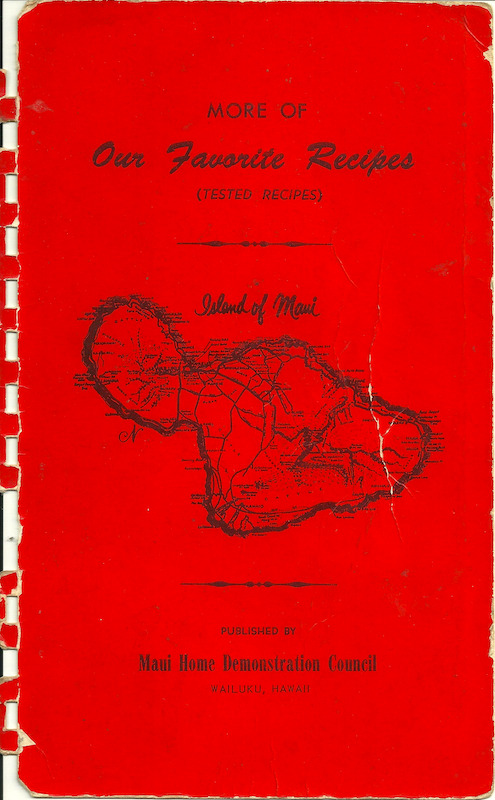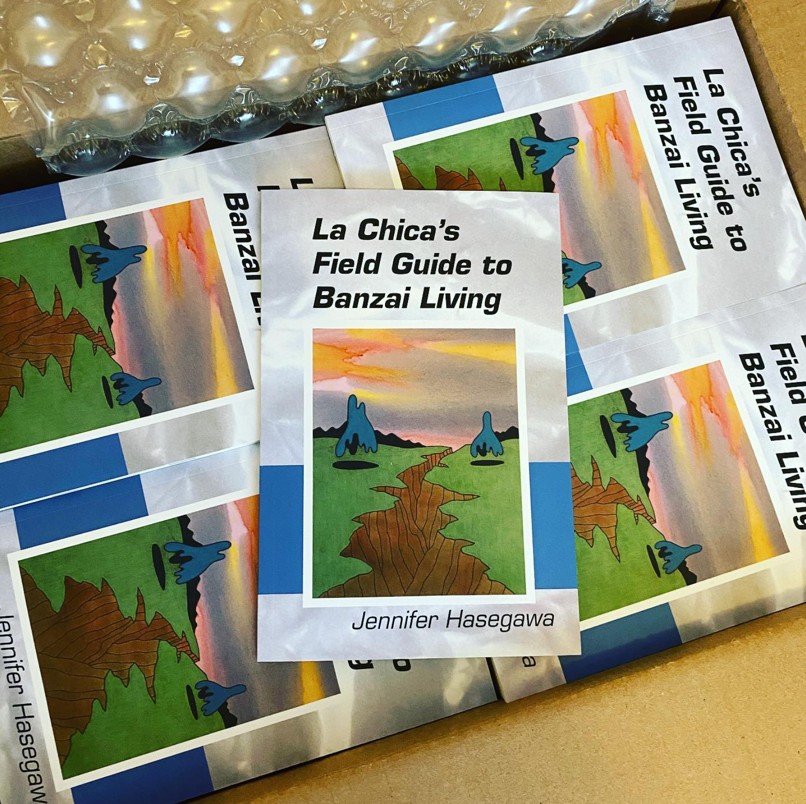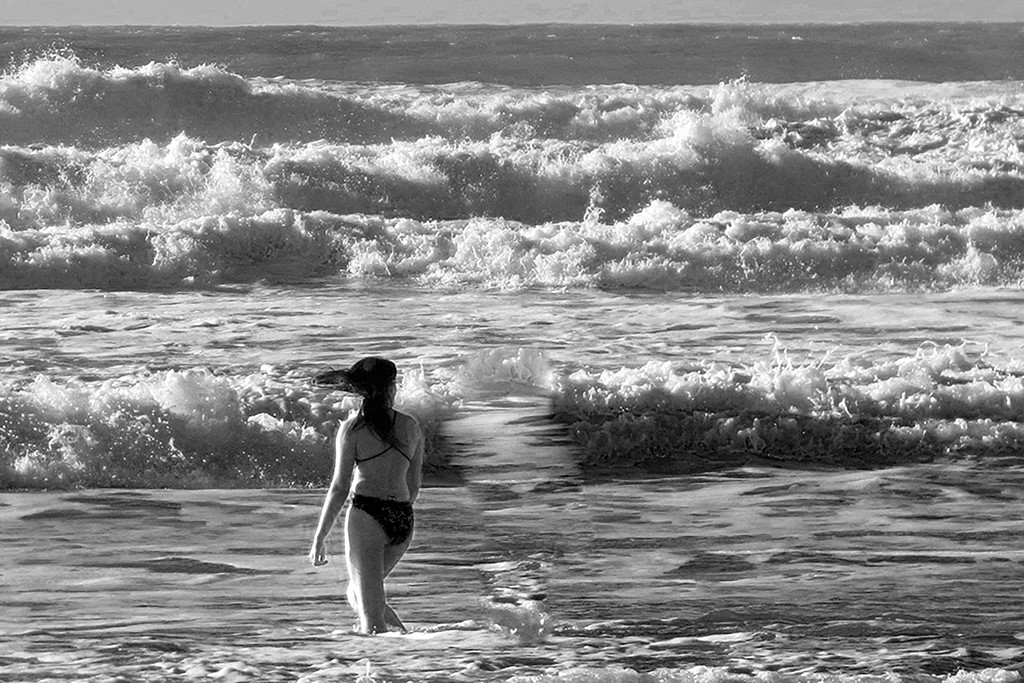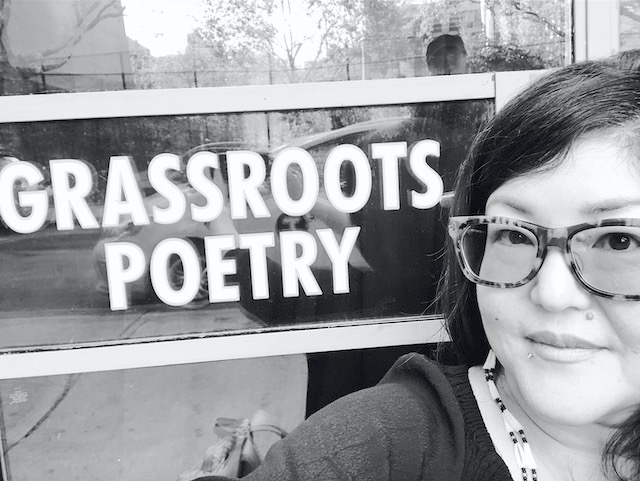We recently connected with Jennifer Hasegawa and have shared our conversation below.
Jennifer, thanks for joining us, excited to have you contributing your stories and insights. We’d love to hear about a project that you’ve worked on that’s meant a lot to you.
It’s funny because my first response was, without a doubt, my first book of poetry, La Chica’s Field Guide to Banzai Living. It was my life’s goal to publish a book of poetry. But as soon as I had the thought, I realized that the most meaningful project would have to be the Kau Kau Chronicles – because it is a project that addresses a need beyond my own personal creative goals.
Kau Kau Chronicles is a website that preserves and shares vintage cookbooks and recipes published by Hawaiʻi community organizations. “Kau kau” is Pidgin, or Hawaiʻi Creole English. As a noun, it means food or a meal: “Where’s da kau kau?” As a verb, it means to eat: “We going kau kau now.”
And at this same time, my book had just been released, and I was canceling all plans for my book tour and trying to figure out how to promote my book and support my publisher, who had invested in and believed in my book. Fulfilling my biggest dream had suddenly turned into a nightmare. And in this existential creative crisis, which I now acknowledge as entitled and trivial compared to the devastation that was unleashed in the following months and years, I saw on my desk, More of Our Favorite Recipes, a cookbook I borrowed from my mother’s kitchen the last time I visited my parents in Hawaii.

It was held together by a rubber band because the plastic comb binding broke and it was falling apart and I’d already lost a few pages along the way.
This cookbook, humble in construction, but mighty in mission, and many others like it, were a constant presence in my life growing up in Hawaii. The cookbooks were always out and opened to key recipes that, to this day, conjure memories of the best of times, holidays, and family celebrations.
I realized I needed to finally perform the task I’d been putting off as I ran off to chase one shiny thing after the other. I needed to scan the book, digitize it, and preserve it before it completely fell apart and I lost more pages.
Then I thought, shouldn’t I share it with others if I’m digitizing it? How might I do that? And I thought about all the other Hawaii community cookbooks in my mom’s and everyone’s family collections. And how as each day passes, the books are at greater risk of disappearing forever.
I thought about putting the book on a website. And maybe even putting more books on it. I checked with some Hawaii friends to see what they thought of the idea. Would they be interested in this? Did other people feel deep attachments to these cookbooks, too? The answer was yes.

As an information architect, I’ve architected home pages, content pages, navigation systems, and tagging taxonomies for dozens of websites. Now, I was ready to do the same for my own passion project, and it felt so right.
I decided to provide the site using a website builder to get something out fast. I didn’t want to get caught up in “perfection” and just wanted to start preserving and sharing cookbooks, learning how people use the site, and then iterating toward improved designs.
Dear friends scanned and contributed cookbooks for us to post to the site. They were so generous and kind, and they created such a positive forward momentum for the project. Their enthusiasm and action made me even more excited about the project. By July, the site was ready for its dry run. I shared it on social media, and it took off from there.
I created a Facebook Group to give people a place to talk about the cookbooks and recipes, sharing stories about Hawaii food. In this community, people have asked for help finding long-lost recipes and finding or substituting rare or obsolete ingredients. Others have asked about old-time cooking techniques, and some people shared their passion for recreating the techniques of our kūpuna (ancestors) in modern times.
Other people have shared stories about what certain recipes mean to them and how seeing a recipe on the site or in the group brought back beautiful, and sometimes bittersweet, memories of times spent with family and friends. There were also stories of people losing their cookbooks in moves, fires, and just through the general entropy that happens with objects over time.
My fear that these physical cookbooks would eventually disappear from the world and that people would miss them – was real.
The website is serving its purpose. We’ve preserved over 30 cookbooks and 4,000 recipes. We have site visitors from all 50 states and over 60 countries. Our Facebook community has grown to include over 6,000 people.
Aside from preserving these historic and historical cookbooks, a couple of things came out of this project that I wasn’t expecting, and these are the things I’m the proudest of. The project gathers people from all over the world around something we hold in common – a love for these recipes and flavors and all of the memories that come with them. The project has also helped empower people as community archivists, a term I learned from a dear colleague, Ida Yoshinaga. Kau Kau Chronicles is not just about sharing recipes, which is beautiful in itself, but this is also about people coming together to preserve their culinary history for generations to come.
As always, we appreciate you sharing your insights and we’ve got a few more questions for you, but before we get to all of that can you take a minute to introduce yourself and give our readers some of your back background and context?
I’m Jennifer Hasegawa, or J-Ha. I am a poet, community archivist, and information architect. I was born and raised on the Big Island of Hawaii and have lived in the San Francisco Bay Area for over 30 years.
I’m so grateful to have grown up in a small town. I took its beauty for granted and could not wait to leave the islands to see the world and break free from what I experienced as a pressure to conform. A typical story, I guess. In hindsight, I sometimes doubt my decision to leave, but always land in a place of gratitude. Gratitude for the ability to leave, gratitude for the hunger that drove me to leave, gratitude for all I’ve been able to learn and experience, good and bad, as a result of leaving.
First and foremost, I’m a poet. My first book, La Chica’s Field Guide to Banzai Living, was published by Omnidawn. The book moves from small towns strung along the coast of the Big Island of Hawai‘i to the land-locked landscapes of Paraguay to the volcanic surface of Venus, building a field guide to flora, fauna, and mineralia – real and imagined. But at its core, it’s about the search for home: Who, what, when, or where is home?

I have two books in progress, a novella-in-verse inspired by the life of Sister Agnes Sasagawa, a Japanese Catholic nun who witnessed Our Virgin of Akita in the 1970s. The other is an anti-memoir-in-verse, telling the story of a life based solely on fleeting and flawed intuitions and impressions. My mission as a poet is to take the everyday and elevate it to the extraordinary and to take the extraordinary and situate it in the everyday. As a poet, I’m interested in being the conduit, the translator, the medium between these states.
I’m also a b/w photographer. My subject matter is mostly the ocean and people, sometimes together. I rarely like photos I take that include people looking at the camera. I feel like the moment a person acknowledges the camera, everything changes. The photo is no longer a true representation of the person. I would rather capture a person with their back turned in authenticity, than the details of a posed face.
My mission as a photographer is to capture candid micro-moments that tell a story about what it’s like to be human.



How about pivoting – can you share the story of a time you’ve had to pivot?
The biggest pivot I had to make in my life was moving from “working jobs” to “having a career.”
I grew up working class, a third-generation immigrant to the US, and am very fortunate to have parents who prioritized giving me a college education and who were able to work to earn enough to allow me the time and space to study hard and get scholarships to fund most of my college education.
The one thing my mother demanded from me was to get a Master’s degree. She never asked me to marry or have children (I’ve done neither) – but she wanted me to get this degree. She believed that a Master’s degree would give me a better chance at being respected. Having felt the impacts of racism and classism, my mother did her best to figure out what might save me from the pains and indignities she had experienced in her life.
When I got out of college, I was in an abusive relationship and my self-esteem was in the toilet. Not just because of the relationship, but because I just didn’t know how to operate in Mainland (what folx in Hawaii called the continental US) society. Coming from a small town in Hawaii and landing in the middle of a university with students from some of the wealthiest families in the US was a complete culture shock. I did my best to ignore it because if I allowed myself to recognize it, feel it, I would have frozen, dropped out, and gone home. And I could not go home.
But now, out of the bubble of academia and trying to get a job to pay rent, I just couldn’t figure it out. I had a degree in English and Journalism, but what could I do with these degrees? I was too afraid to teach people. I was too afraid to interview people. I was enrolled in a Master’s program in Creative Writing. The one thing I wasn’t afraid of was writing poetry. Would someone pay me to write poems?
I waited tables at Denny’s, where I saw some of the best teamwork, without any formal training programs. I sold shoes, where I learned to be humble. I worked at K-Mart. I sold juices wholesale to liquor and grocery stores. I sold funeral insurance, cold calling door-to-door, where I learned to be bold and empathetic. I worked for a job training program for adults with developmental disabilities, which is one of my favorite jobs ever. We worked hard, but there was a 15-minute dance party at the end of the lunch hour every day. I worked the graveyard shift at a public relations newswire, and I’d sleep in a supply closet and then go to my Master’s program classes during the day.
I constantly had to beg my landlord for more time on rent. I can’t tell you how many times I was 24 hours away from having my power or phone shut off. I had so many debtors calling me that, to this day, I have an aversion to the sound of a phone ringing.
I had to find a way to move beyond my fears of inadequacy to fulfill my potential. I knew inside that I had a lot to offer – but I had no idea how to do it. My parents, loving as they are, had no guidance they could share. If they had their way, I would have come back to Hawaii to try to get a government job and stay in that one job forever.
At the time, I’d search the classifieds for the word “writer” to see if one day something might show up. One day, something showed up: “Technical writer.” This sounded interesting and promising. I found a certificate program at UC Berkeley and decided to take a class. I had just sold a big funeral insurance package and used the commission to pay for the class. I loved technical writing. The instructor asked me to apply for an internship at her company. I got it, and that is how my career as a technical writer, information architect, and content designer started.
This pivot changed my life because it gave me a profession to develop and a steady living wage. I was also lucky enough to enter the software industry.
Because of the opportunity this internship gave me, I am a huge fan of internships and always jump at the chance to work with interns. It also helped me understand the importance of mentorship – being both a mentor and a mentee. Regardless of your background, mentors can help bridge gaps in understanding when family and friends can’t. If I had a mentor to guide me where my parents couldn’t, maybe I could have found my courage and calling sooner. Maybe not. Maybe it all unfolded exactly as it should have.
The gray area in this pivot is that having a career in tech has left me with less time to focus on poetry. If I never entered tech, would I have 20 books of poetry published instead of just one? Who knows. But I’ve found that the tension between my professional life and creative life makes me appreciate and push harder in both. Working in tech does take up a lot of my mindspace and time, but that makes my creative work time all that more urgent and productive. I’ve found a way to balance the two, but it is a struggle every day. But I’ll take that struggle any time over the struggle to pay rent. That scenario creates its own kind of stress such that even if I had more time to write, the struggle to survive sucked all of the creativity out of me.
What’s a lesson you had to unlearn and what’s the backstory?
I had to unlearn all of the verbal filters I put upon myself. I’m still unlearning this.
I grew up in a household and immediate culture where we didn’t say much. We didn’t need to comment on every moment, every event, every emotion. I learned this behavior very early on and I didn’t really make much of it.
But when I moved away and saw how much people talked about every single thing and expected me to do the same as a baseline for being acknowledged, I had to unlearn this behavior.
To be clear, it’s not that I didn’t have reactions to every moment, every event, every emotion – I just didn’t verbalize them. So while people sometimes called me quiet, I assure you that my mind was anything but. The “quiet” label also irks me because I think some of it was driven by stereotypes. If I weren’t an Asian female, people might have used other adjectives to describe me, such as measured, strategic, or stoic. But I got, and still get labeled, “quiet,” which I think is better than noisy, I guess.
How did I work on removing the filters? I worked on it in therapy and learned from people I think are great conversationalists and communicators. The best piece of guidance I’ve received is to ask questions. This guidance works well for me because I have a lot of questions and people love to talk about themselves. Just take a look at this interview!
Contact Info:
- Website: https://jha.land
- Instagram: https://www.
instagram.com/alohajha - Linkedin: https://www.
linkedin.com/in/jhasegawa - Twitter: https://twitter.com/
j_ha - Youtube: https://youtube.com/
playlist?list=PLQ28- R0XKcaUkC5TWo3r_7sEMJoL4jxA6 - Other: Kau Kau Chronicles, La Chica’s Field Guide to Banzai Living
Image Credits
Jennifer Hasegawa


